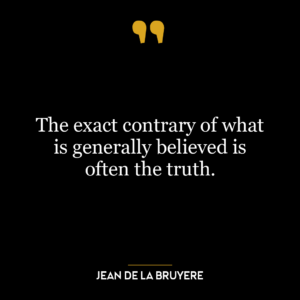“Let there be truth between us” is a call for honesty, authenticity, and transparency in the way we communicate and interact with each other. It implies that relationships, whether personal or professional, should be founded on truthfulness, not deceit or pretense. This assertion recognizes the importance of truth as the bedrock of trust, respect, and mutual understanding.
This quote can be seen as a critique of superficiality and insincerity that often permeate human interactions. It encourages us to be genuine and sincere, to say what we mean and mean what we say, to be true to ourselves and to others. It suggests that when truth is shared, it fosters deeper, more meaningful connections between people.
Applying this idea in today’s world, especially in the context of social media and digital communication, means striving for authenticity in our online interactions. In an era where fake news and misinformation can easily spread, it’s more important than ever to be truthful. In personal development, it could mean being honest with ourselves about our strengths and weaknesses, our dreams and fears. It encourages us to confront and accept our true selves, without pretense or self-deception.
In a broader societal context, this quote could be seen as a call for transparency and accountability in institutions, governments, and corporations. It suggests that truth is not just a personal virtue, but a societal one. It’s a reminder that truth is the foundation of trust, and without trust, societies, relationships, and organizations can’t function effectively.
In summary, “Let there be truth between us” is a powerful call to embrace truth in all aspects of life – in our relationships, in our communication, in our self-perception, and in our societal structures. It’s a call to reject deceit, pretense, and superficiality, and to strive for authenticity, honesty, and transparency.








